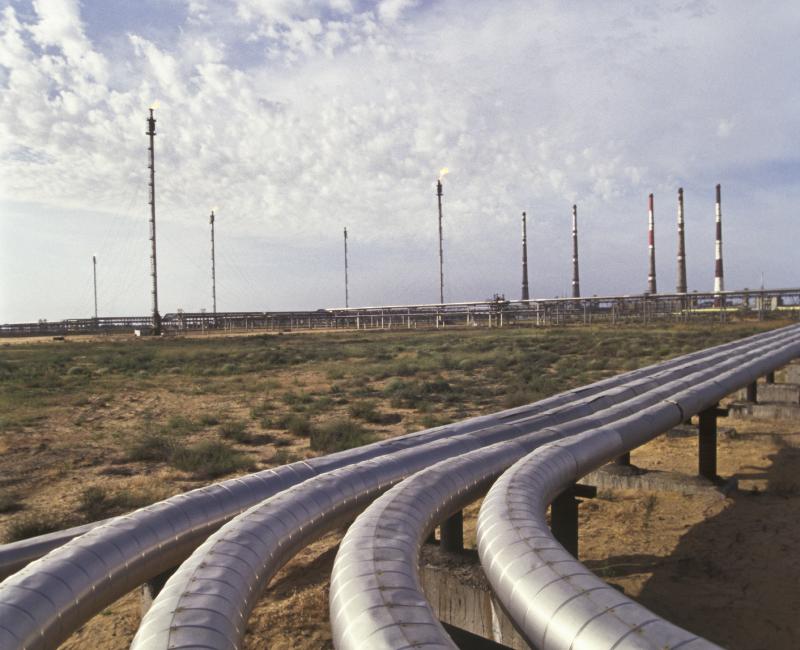ACER finds that contractual congestion in the EU gas networks remains low in 2021
What is it about?
The EU Agency for the Cooperation of Energy Regulators (ACER) publishes today its 9th Report on the Contractual Congestion in the EU gas markets. The report found that contractual congestion in the EU gas transmission networks in 2021 remained low, but that competition for transmission capacity increased in the fourth quarter of the year.
Why contractual congestions should be monitored?
Contractual congestions are relevant as they signal a reduction in market efficiency: while some network users are not able to obtain the transmission capacity product of their choice (and need to rely on congestion-mitigating measures to access the gas market), others who contracted capacity may not use it.
What are the Report’s main findings?
-
In 2021, congestion remained low, as observed in 2020. 18 exit and entry points were congested in the EU gas networks - around 5% of all Interconnection Points (IPs) in the EU - compared to 19 in 2020. Half of the reported congestion in 2021 is due to auction premia (where the market clearing price exceeds the regulated capacity tariff), which occurred in the auctions of yearly, quarterly and monthly capacity products. The other half is caused by the lack of offer of any yearly, quarterly and monthly capacity products.
-
In the fourth quarter of 2021, competition for transmission capacity increased as manifested through the rising number of auctions clearing with a premium. This applied to several products, from quarterly to within-day capacity products. Rising spreads between markets as of September 2021 could have increased competition for cross-border capacity. If the same level of competition persists in 2022, a rise of contractual congestion may be observed.
Without pre-empting the full analysis of capacity auctions during 2022 (which will be covered in the next edition), ACER observes that multiple auctions in the first and second quarters of 2022 have closed with premia.
Moreover, in a dozen of cases, auctions were terminated without any allocation of capacity because the allocation mechanism has not been flexible enough to accommodate the prevailing market conditions (with high and volatile market spreads). As such, the respective auctions had not been cleared before the capacity product would become active.
Has progress been registered?
While the number of congested IP is low, local contractual congestion can be severe and reduce market efficiency. Around 85% of the congested IPs in 2021 were also congested in the past. On the other hand, three of the congested IPs concerned (German domestic IP sides) have disappeared due to the German market merger. Competition for capacity may shift to other points bordering the German market area.
How can congestion be addressed?
Gas Transmission System Operators (TSOs) can apply several congestion management procedures (CMPs) to ensure users can access the network even when they cannot obtain a specific capacity product in the primary capacity auctions. The oversubscription mechanism (where more capacity is marketed than is technically available) remains the most applied CMP in 2021 despite its usage has further decreased. This decrease is partly compensated by a quadruplicated usage of the surrender mechanism (where a network user returns unused capacity to the TSO who can reallocate it to other parties).
More than half of the congested IPs are already covered by the firm day-ahead use-it-or-lose-it mechanism (FDA UIOLI), while the respective National Regulatory Authorities (NRAs) need to take action for the remaining ones, which shall be in line with the European Commission’s rules on contractual congestion.
What are ACER’s recommendations and policy reflections?
-
ACER recommends the European Network of Transmission System Operators for Gas (ENTSOG) and TSOs to continue improving data reliability to ensure the accuracy of information available at the ENTSOG Transparency Platform.
-
ACER welcomes the proposal of the European Commission’s ‘Hydrogen and Decarbonised Gas Market’ Package for revising the CMP guidelines. The proposal addresses several long-standing issues raised by ACER.
Access the 9th Congestion Report and its Technical Annex.



